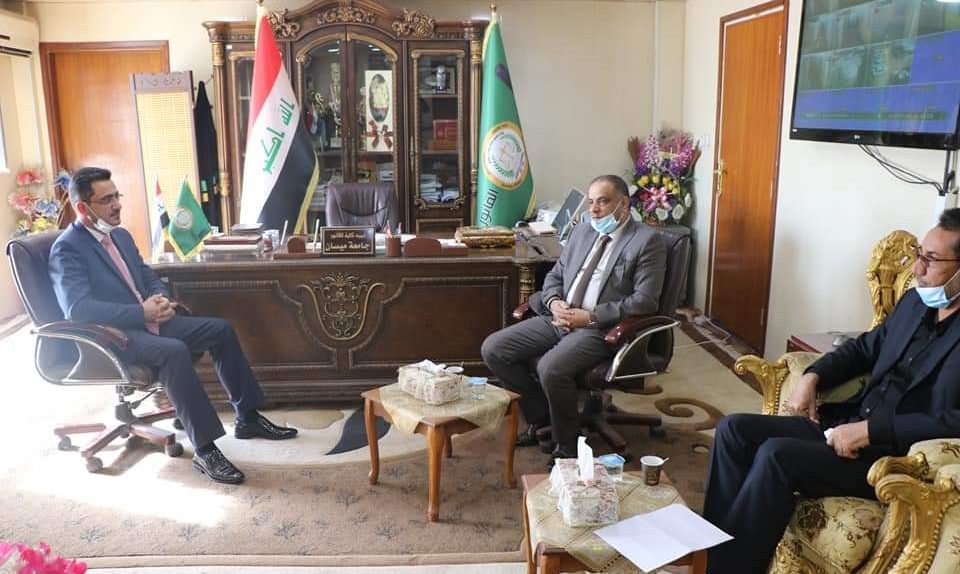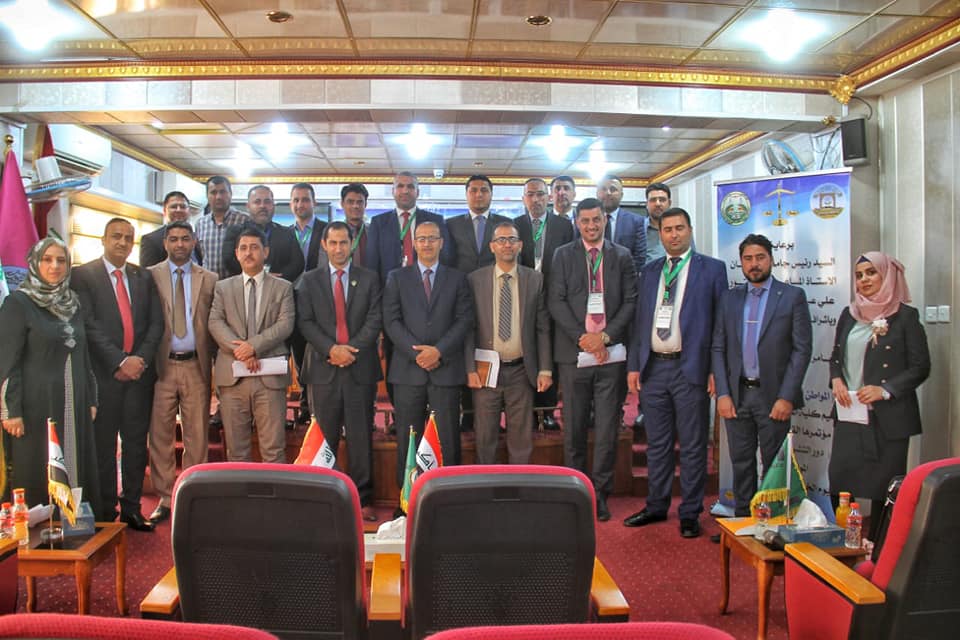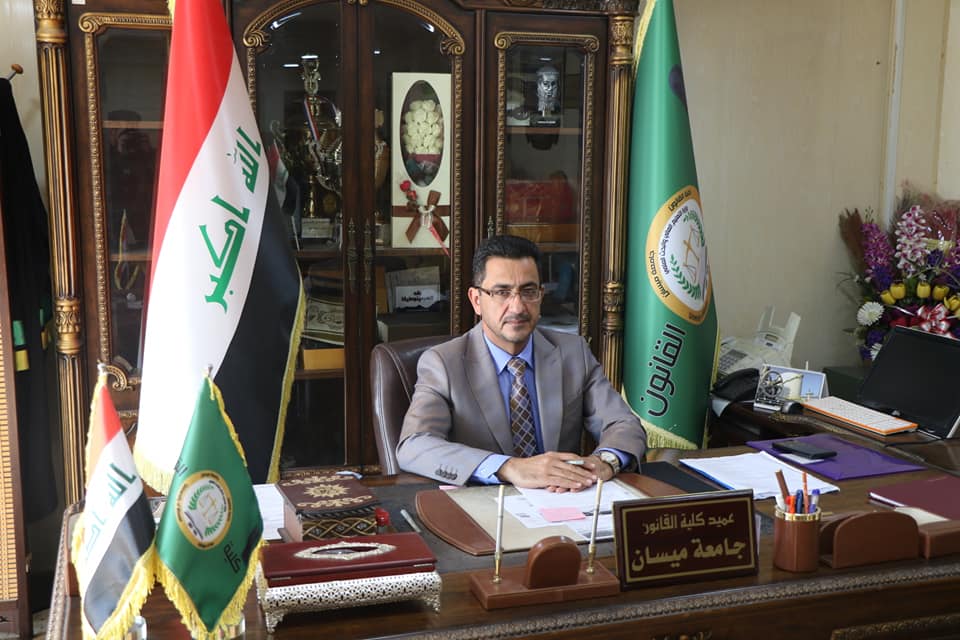A Guide of the College of Law – University of Misan
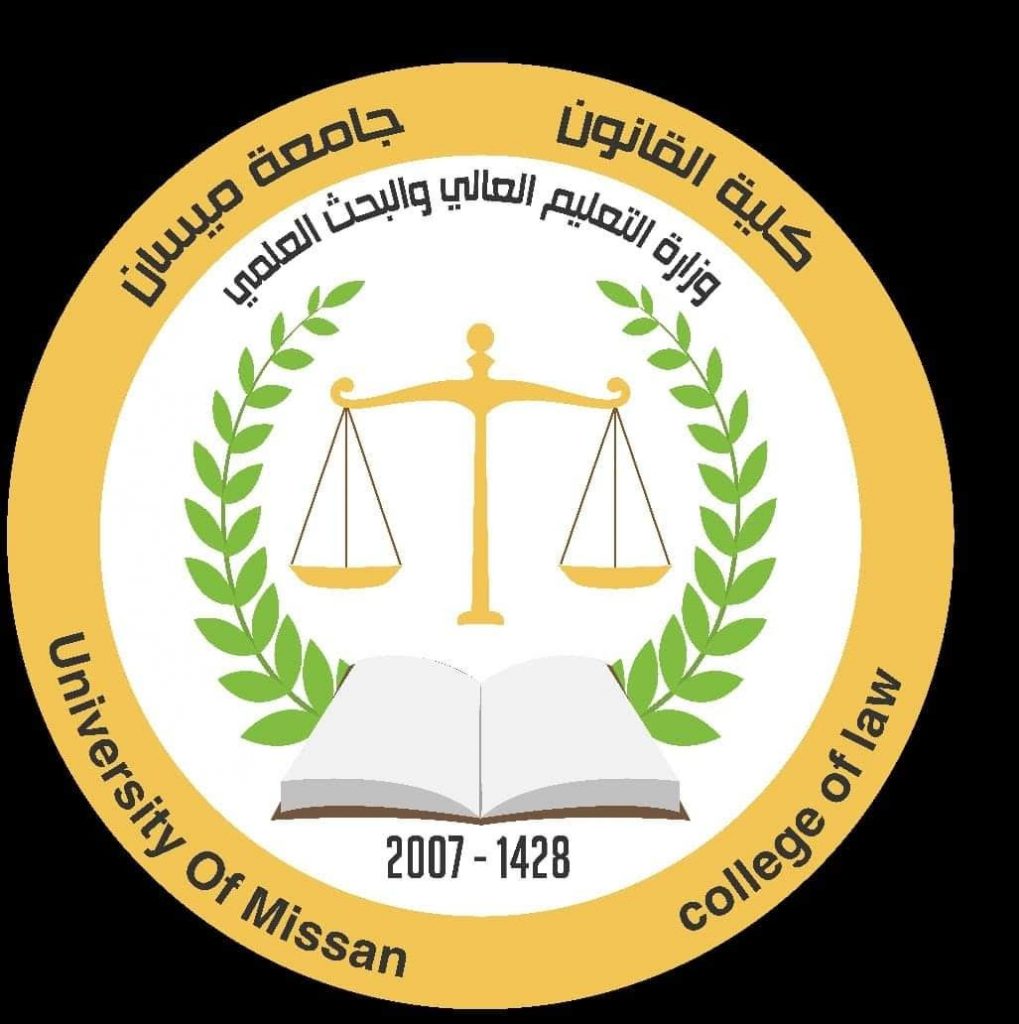
First: An introductory brief:
The College of Law – University of Misan was established on 1/10/2007 to make its way to the edifice of science and knowledge and to be a tributary of different legal knowledge. It contains two departments, namely the Department of Private Law and the Department of Public Law. In the past three years, our college has obtained advanced positions in the national classification, the most recent being the fifth at the level of colleges of law throughout Iraq.
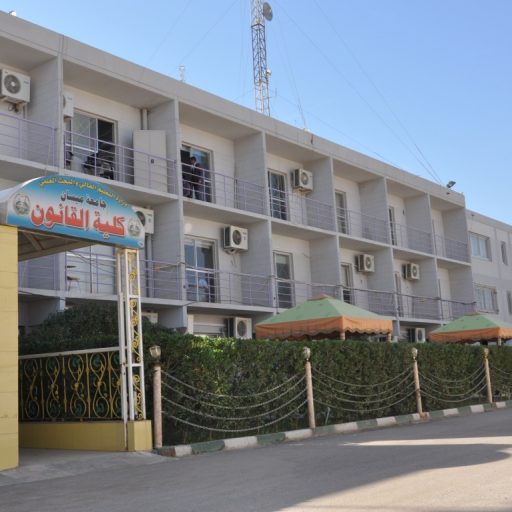
Second: the scientific activities achieved in our college for the past period:
1- Creation an evening study: The evening study was starting from the 2012-2013 academic year. it came to achieve the college’s objectives within its plan to expand and open up to society, which contributed to accepting an increasing number of students wishing to join the College of Law.
2- Creation the postgraduate studies: In pursuit of its aims, In the academic year 2015-2016, the college opened a postgraduate master’s degree in the Department of Public Law, Moreover, in the academic year 2016-2017 the college opened a postgraduate master’s degree in the private law department . This contributed to the development of legal sciences and to supply state institutions with holders of higher degrees from efficient youth energies.
3- Creating the College Journal: With the aim of providing legal researchers and giving them a free space for their writings, the College created in 2019 the College’s Journal, namely the Misan Journal for Legal Studies, which is the first specialist Journal in Iraq in field of comparative legal studies.
4- Development of the college library: The college has a library Containing no less than (24,000) thousand books in the various branches of law, and it is currently receiving undergraduate students (morning and evening) from within the college and other corresponding colleges in the governorate, as well as graduate students from within the college And outside of the residents of Misan Governorate.
5- Development of the College’s Infrastructure: Based on the College Deanship’s keenness to enhance the infrastructure of its assets and expand the spaces of the College to ensure the service of the scientific process, the addition of new classrooms has been completed in order to accommodate the increase in the number of students admitted to undergraduate and postgraduate studies, in addition to the classrooms Available in the faculty dedicated to giving scientific lectures, and rooms for seminars, conferences and scientific discussions for master’s students.
6- Encouraging student activities: – Preparing students and raising their knowledge and skills is the main goal of universities and colleges in general, so this must have a prominent position within the college’s vision by supporting students ’scientific activities such as scientific competitions as well as encouraging students to volunteer work inside and outside the college and help in Establishing extra-curricular student activities.
In order to achieve the foregoing, the college worked to provide places designated for student activities by establishing a sports stadium and aspiring to establish a closed sports hall for girls ’games.
7- Development of the research aspects of the lecturer staff: – The scientific aspect represents a fundamental axis in the work of the College of Law and includes important joints and is an important number in the field of raising the scientific classification of the college. In order to improve the scientific impact in our college, the following things were worked out:
- Increasing the preparation of scientific research for the faculty members by urging professors and encouraging them to publish in international fields, especially those with an impact factor, Clarifit or Scopus.
- Encouraging the lecturer staff to participate in local and international scientific conferences.
- Overcoming the obstacles facing the scientific promotions movement: by working to form a sub-committee for promotions in our college, starting from 2017, for the purpose of urging professors to provide scientific promotions within the legal periods, and to increase the number of academic titles in our college as it is one of the new colleges, noting that the number of scientific promotions carried out since establishment the promotions subcommittee in our college are (six promotions of professor degree , thirteen promotions of assistant professor, and four promotions of lecturer degree).
8- Holding a scientific conference: Based on the importance of scientific conferences and the necessities of the stage that is reflected in addressing the problems faced by institutions and in order to keep abreast of developments in the field of legal float, our college held its annual international scientific conference for the academic year 2018-2019 and the research presented in the conference proceedings was published in one of Sober scientific journals.
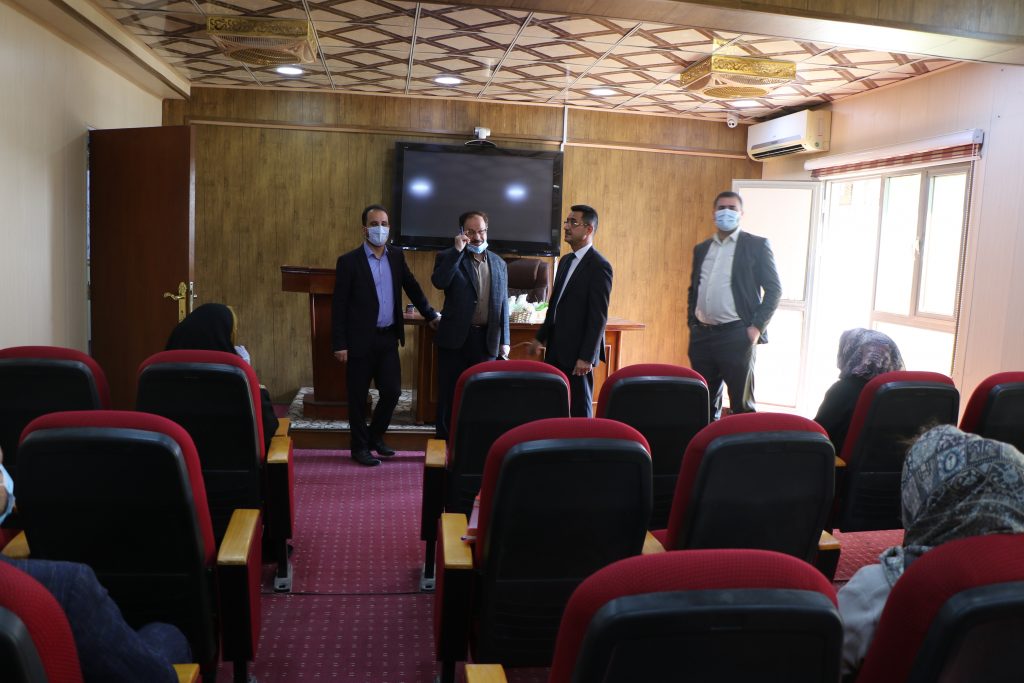
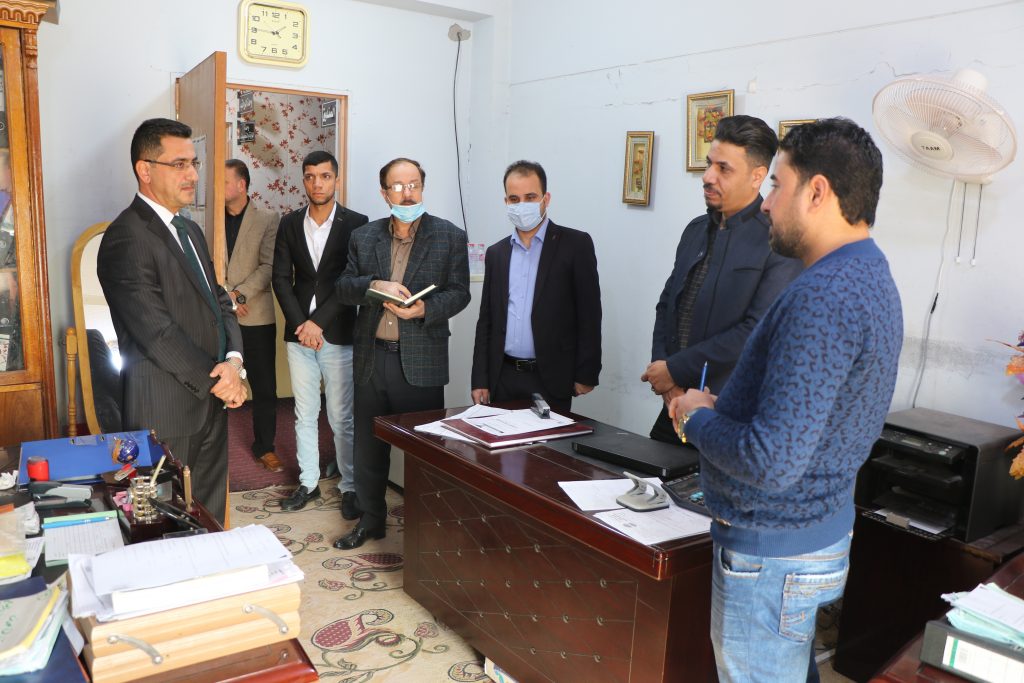
Third: College Vision:
The college seeks to provide solid university education and brilliant scientific research in the field of legal studies, with the aim of reaching leadership and excellence as an educational institution that works to qualify and graduate highly qualified legal cadres for the purpose of elevating the scientific reality in the college to international quality standards in accordance with the vision of the Ministry of Higher Education and Research Scientific and relentless pursuit to reach the scientific reality of educational institutions to the ranks of sober international universities.
Fourth: The college mission:
1- The college works in achieving its mission to prepare distinguished legal cadres in the field of judicial work and to prepare qualified and specialized lawyers to contribute to raising the level of practice of the profession in Iraq in a manner that ensures the dissemination of legal culture and directing it to serve the needs of society.
2- Graduating legal cadres capable of working in all state institutions equipped with various legal sciences.
3- Preparing researchers of Postgraduate studies degrees in the field of law to meet the needs of the public office in the administrative and legal aspects.
4- Giving an attention to the ethics of the public office and focusing on the principle of scientific sobriety and fully qualifying the graduate in carrying this legal message in order to achieve the actual contribution in laying the foundations of society towards building a high-end human civilization that is based on the scientific method of thinking and practice as a tool to achieve this mission.
Fifth: Objectives of the College:
1- Developing the research capabilities of the college member by encouraging the scientific research movement in the fields of authoring, translation and publishing in sober international journals within the framework of the scientific method based on thinking and practice.
2- Activating the total quality system in order to raise the scientific level of our college in preparation for its entry into the international classifications and work diligently to establish standards of quality performance in academic work.
3- Working on implementing the government program to ensure the advancement of scientific and service reality in the college.
4- Upgrading university studies and working on developing scientific trends and adopting the method of scientific thinking in dealing with community issues and problems.
5- Taking care of directing students and choosing the best means to expand their activities to raise their scientific level and develop their spirit of innovation, creativity, innovation and initiative.
6- Involving the community in solving the existing problems and developing the necessary solutions and treatments for them in a way that achieves the role of the college in building society.
7- Scientific openness to sober international and Arab universities and concluding joint cooperation agreements.
8- Supplying state institutions with specialized cadres in the field of law and striving towards strengthening the public position in the state’s administrative apparatus with graduates qualified in various legal sciences.
9 – A work to develop plans to ensure attention to the scientific indicators for the establishment of international conferences, scientific symposiums and seminars to discuss community issues that worthy of treatment, in order to develop solutions and proposals necessary to solve them.
10 – Upgrading the level of legal education for workers in state departments by conducting specialized training courses to ensure their acquisition of practical and knowledge aspects in the field of law.
11- Maximizing the college’s income resources by making better use of its available resources and its scientific and material capabilities.
